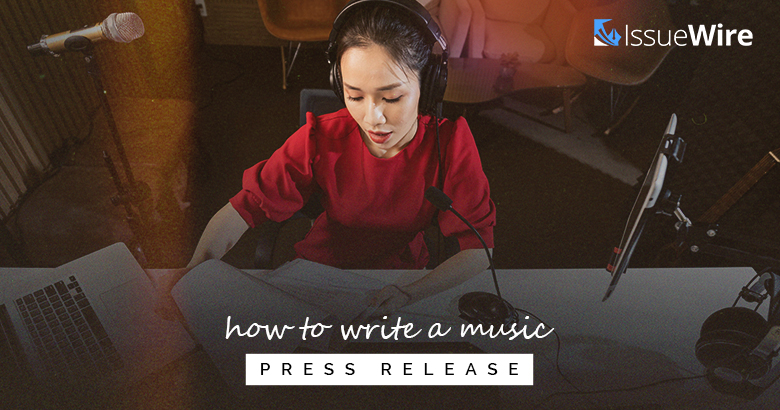Press releases are the most effective tools of online marketing which is heavily used by businesses from various industries to gain more exposure from the niche. Due to its dynamic benefits. This written document can be used for the entertainment and music industry as well. It is fairly reasonable and helps to gain maximum media attention from the potential market.
As a result, it can greatly empower emerging and independent artists who are in dire need of media attention as well as organic exposure. But in order to make the PR campaign successful, first you need to discover how to write a music press release. While it does not change the traditional format of a press release, it still requires some careful input to make it successful. Let’s find out how to write a music PR effectively in simple ways.
1. Figure Out the Right Time
The press release is sensitive to time and it can lose its relevance if not distributed at the right time. Therefore, it all starts with knowing the right time to use a press release that offers maximum media attention and fruitful results. While you can write a PR anytime you want, here are some examples of the most common occasions to write and distribute a music press release.
- Album launch
- Signing to a Label
- New Gig or Concert
- Upcoming Music Tour
The idea is to publicize something that is interesting, newsworthy, and can benefit your musical career. Make sure to conduct research before you embark on writing and distributing them.
2. Add Relevant Details
Press releases do help in marketing but it is not the ideal place to brand or establish your career. It is the best place to share stripped details of newsworthy topics and journalists like. Make sure to include only what is relevant to your music and the story of the PR. For example, if the PR is about your upcoming music tour, it should include the dates, venue, and other details rather than the tracklist for your previous album. Journalists are busy and you should make it easier by offering all the bare-bone details without using jargon and flowery language.
3. Craft a Compelling PR Title
The title is the first thing one notices whether a journalist or a regular online user with a love for music. The PR must have an engaging and compelling title that offers the idea of what the PR is all about. The title of the PR must immediately provide a value proposition to reporters and journalists. The title should be brief, clear, and easy to read. Keeping a straightforward and detailed title increases the chances of getting picked up by journalists and other distribution channels.
4. Proofread Your Content
Proofreading is the most important step for all kinds of PR content and if you are not going to do it, do not write the PR. The press release is considered to be the most authentic and official document that is trusted by the media and the journalists as well. Nothing can be worse than a press release that is filled with silly grammatical errors and spelling mistakes. It is not only embarrassing but also a quick way to ruin your reputation which took much time to build. If you do not want your PR to get rejected, make sure to proofread and send a copy that is error-less, compelling, and engaging. You can also take the help of online tools for this purpose.
5. Keep It Simple and Impactful
Your music press release does not have to be a clutter of information. Rather, keep it simple and impactful which is easy to read and piques interest among the online users. You might want to add color or change font to embrace your artistic side as a music artist but it is better if you do not. PR is professional and formal-type content and there is no place for glitters. However, you can add a few selected images to keep it visually appealing. It also increases the email open rate.
6. Avoid Self-Promotion at All Costs
Even though the press release is mainly used to promote your business which is music in this case; you should not self-promote through the content. The tone used in your PR plays a vital role in gaining success. Instead of self-promoting and selling yourself, try to educate the audience of the readers about your music and other details. This also increases the chance of getting picked as Journalists do not really like PRs that boast like an act of self-promotion.
Bottom Line
Writing a music PR is not rocket science but it still requires crafting the content carefully. In case you are unable to craft your own, make sure to hire a professional to guide you through the whole process.








